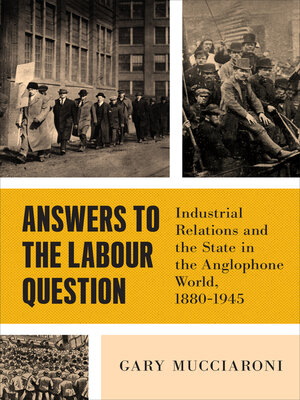Answers to the Labour Question
ebook ∣ Industrial Relations and the State in the Anglophone World, 1880–1945 · Political Development: Comparative Perspectives
By Gary Mucciaroni

Sign up to save your library
With an OverDrive account, you can save your favorite libraries for at-a-glance information about availability. Find out more about OverDrive accounts.
Find this title in Libby, the library reading app by OverDrive.



Search for a digital library with this title
Title found at these libraries:
| Library Name | Distance |
|---|---|
| Loading... |
Since the mid-nineteenth century, public officials, reformers, journalists, and other elites have referred to "the labour question." The labour question was rooted in the system of wage labour that spread throughout much of Europe and its colonies and produced contending classes as industrialization unfolded. Answers to the Labour Question explores how the liberal state responded to workers' demands that employers recognize trade unions as their legitimate representatives in their struggle for compensation and control over the workplace.
Gary Mucciaroni examines five Anglophone nations – Australia, Canada, Great Britain, New Zealand, and the United States – whose differences are often overlooked in the literature on political economy, which lumps them together as liberal, "market-led" economies. Despite their many shared characteristics and common historical origins, these nations' responses to the labour question diverged dramatically. Mucciaroni identifies the factors that explain why these nations developed such different industrial relations regimes and how the paths each nation took to the adoption of its regime reflected a different logic of institutional change. Drawing on newspaper accounts, parliamentary debates, and personal memoirs, among other sources, Answers to the Labour Question aims to understand the variety of state responses to industrial unrest and institutional change beyond the domain of industrial relations.







